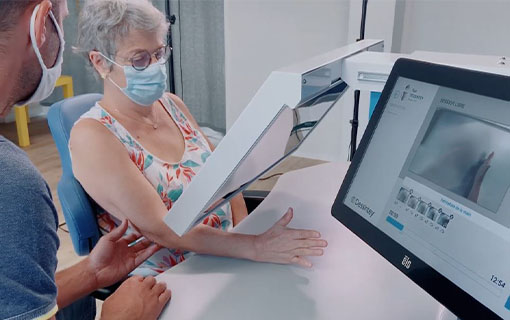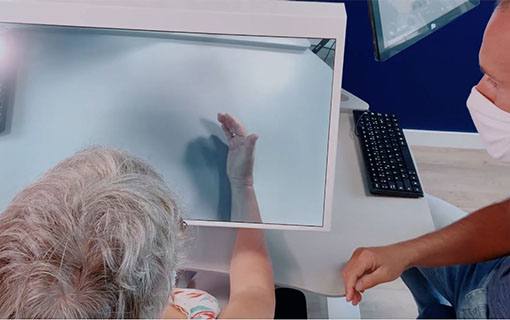Specific visuomotor neurons involved in both vision & movement execution
Specific visuomotor neurons are deeply involved in both vision & movement execution. These two types of neurons are called canonical or mirror neurons.
Therefore, the same specific areas of the brain are activated:
Therefore, the same specific areas of the brain are activated:
- when we see someone performing an action and when we perform this action ourselves (RIZZOLATTI et al. 1996, GALLESE et al. 1996, LEE et al. 2013)
- both when we perceive a familiar object and when we handle it (JEANNEROD et al. 1995, IACOBONI et al. 2005, MURATA et al. 2016).
Vision is therefore closely linked to motor planning and the learning processes.
This suggests that movement observation should also be included in rehabilitation pathway for post-stroke, pain-suffering or trauma patients.

Our IVS3 is a unique technology dedicated to central control of movement.
Compared to conventional approaches of visuomotor simulation training, the IVS3 system provides:
- Intense immersion allowing the patient to focus on his movement;
- Strong embodiment feeling essential to improve recovery;
- Simply understandable method (very few exclusion criteria);
- Sustained participation and possible autonomy even in fatigue-prone patients;
- Simple, quick and comfortable installation with straight-ahead vision.
> Vision and movement are closely linked.

(1): RIZZOLATTI et al. 1996, GALLESE et al. 1996, LEE et al. 2013
(2): JEANNEROD et al. 1995, IACOBONI et al. 2005, MURATA et al. 2016
(2): JEANNEROD et al. 1995, IACOBONI et al. 2005, MURATA et al. 2016